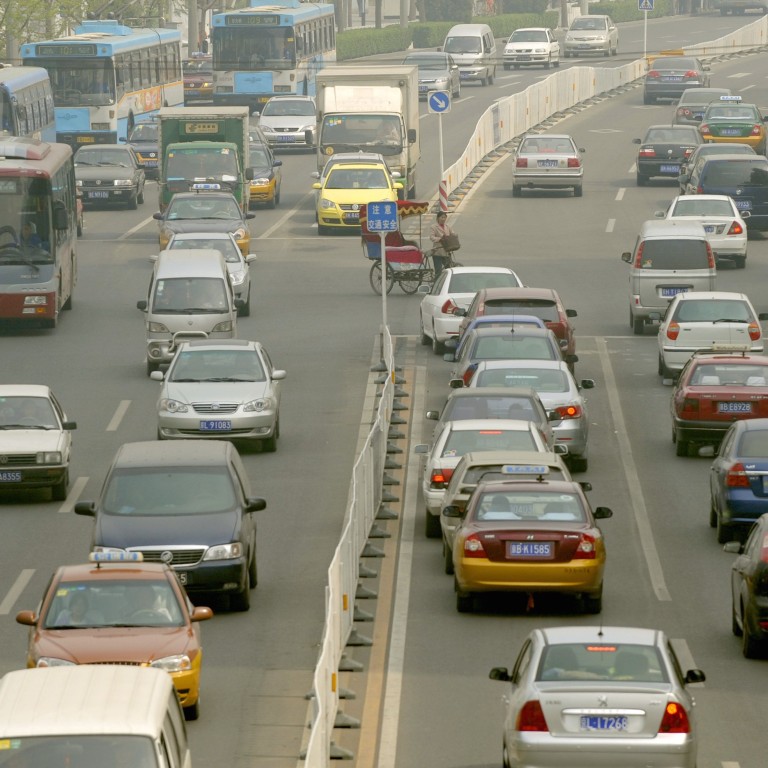
Update | Ratings agency Fitch cuts global growth forecast to 2.3 per cent, weakest since financial crisis
In the face of China’s weakening economy, ratings agency Fitch has cut its global growth forecast for this year to 2.3 per cent from 2.4 per cent, its weakest estimate since the financial crisis in 2009, the agency said yesterday.
Fitch also slashed its gross domestic product forecast next year to 6.3 per cent from 6.5 per cent, although its numbers for this year remain unchanged at 6.8 per cent.
The adjustment came amid signs of weakness in some of China’s forward-looking indicators. Fitch has cut its growth forecast for 2017 to 5.5 per cent from 6 per cent based on a reassessment of the economy’s medium-term adjustment path.
Andrew Colquhoun, the head of Asia-Pacific sovereigns at Fitch, said the global GDP cut was largely driven by pressures on emerging markets including recession in Brazil and Russia, and structural adjustment in China.
“Growth in the major advanced economies is projected to pick up into 2016 but with downside risk from any rebound from the weakness in emerging markets,” Colquhoun said.
“However, the picture for emerging markets is not uniformly gloomy and some countries including India, the Philippines and Vietnam are less exposed to the current conjunction of risks.”
Fitch forecast global growth will improve with GDP increasing 2.7 per cent in 2016 and 2017 on some recovery in emerging markets. Growth in major advanced economies is forecast to strengthen to 2 per cent in 2016, the fastest since 2011.
Fitch on Thursday had said if China were to have a hard landing, Hong Kong, South Korea and Japan would be hardest hit due to their strong trade relationship with China.
Derek Lai Kar-yan, the managing partner of Deloitte China’s southern region, said China’s economic outlook in the fourth quarter was not looking good.
“China still suffers from the problem of oversupply of materials. Property, stocks investment and retailers performed poorly in the third quarter and the fourth quarter will be unlikely to have a quick bounce back,” Lai said.
He believes China will initiate some measures to support industries such as infrastructure.
“But then, not all industries will get government support. Overseas markets are not doing good either with the US likely to increase the interest rate in the fourth quarter. I believe Hong Kong and mainland China’s economic growth will slow down this year,” Lai said.
The Fitch announcement followed one from Barclays last week in which it revised its GDP growth forecast for Hong Kong to 1.8 per cent from 2.3 per cent, also primarily due to worries over China’s slowdown.
“Given disappointing tourist arrivals and retail sales, we revise down our GDP forecast from 2.3 per cent to 1.8 per cent, and see continued headwinds to growth rising from China’s slowdown and the expected Fed rate hikes,” Barclays economist Jian Chang said in a note to clients on September 26.
“Hong Kong’s economy experienced strong headwinds in the past two quarters. Leading indicators such as [the purchasing managers’ index] worsened to 44.4, its lowest reading since early 2009. The number of tourist arrivals plunged to single-digit growth in March 2015 and reached 5.5 per cent in July, a 63-month low,” she said.
“Considering Chinese tourist arrivals account for more than 70 per cent of total tourist arrivals, we expect a strong Hong Kong dollar relative to yuan to push mainland tourists further away from Hong Kong to other countries in the region or Europe, weighing on Hong Kong’s tourism sector and the growth outlook. Moreover, retail sales growth has remained in negative territory since last December.”
HSBC co-head of Asian economic research Frederic Neumann said Asia as a whole is worried new orders will not show any significant improvement.
“There was a notable divergence in China, with the official measure up barely but the Caixin reading down to its lowest in 45 months. For the region overall, new orders have contracted since February, the longest stretch since the global financial crisis,” Neumann wrote in a report yesterday.

